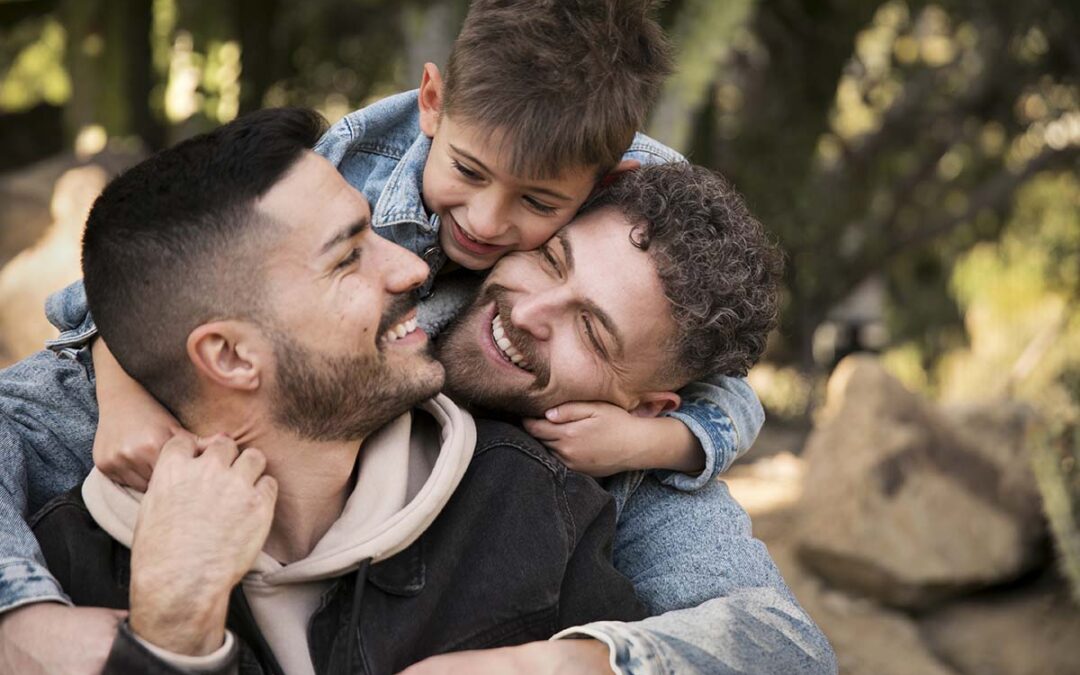Parenting – the process of raising children and providing them with protection and care in order to ensure their healthy development into adulthood. A very simple definition for this humongous role that individuals take on at some point in their lives. This role in itself has seen a shift, from the conventional heterosexual view to a much more diverse path in the 21st century. Different personalities, styles and environments come together to parent a child. In most societies, unfortunately, the focus remains on the sexual orientation of the parents, the only ‘acceptable’ kind being heterosexual couples. There is always a debate regarding the development of a child under straight or LGBTQIA+ parents. We have already discussed the hurdles faced by individuals within this community, in our previous articles. But what happens to the children who have parents belonging to this community? How do they develop cognitively, affectively and behaviourally? These are the aspects we will explore further. Years of research from all around the world continue to report effects and differences with regards to the sexual orientation of the parents and the development of the children.
In 2001, a review article in the America Sociological Review noted that while there appeared to be some differences in outcomes between children in same-sex and heterosexual households, there weren’t as many as family scholars might have expected. Some differences such as an inclination towards same-sex experimentation is no longer perceived as inadequate in an enlightened age like ours.
In 2005 the American Psychological Association had issued a brief on lesbian and gay parenting in which it was asserted, “Not a single study has found children of lesbian or gay parents to be disadvantaged in any significant respect relative to children of heterosexual parents.”
Contrary to prevailing expectations, early studies with mothers who came out as lesbians showed that they were just as likely to have good mental health and positive relationships with their children as were heterosexual mothers and that their children were no more likely to show emotional and behavioural difficulties, poor performance at school, or atypical gender role behaviour than were children with heterosexual parents (Tasker, 2010; Patterson, 2017). The results of a study consisting of longitudinal data from the Netherlands, which was the first country to legalize same-sex marriage, indicated that children raised by same-sex parents from birth perform better than children raised by different-sex parents in both primary and secondary education. The data included 2,971 children with same-sex parents (2,786 lesbian couples and 185 gay male couples) and over a million children with different-sex parents followed from birth (Mazkeraj et.al., 2020). Several studies also highlight the positive effects of same-sex parenting. As they develop socially, children of queer parents have been found to have more flexible attitudes toward gender roles, both in regards to the division of labour within the home and the careers to which they’re drawn. Consequently, they grow up to have more diverse and queer-friendly social circles and are more likely to be working in fields like social justice (Belkin, 2009). Children of queer parents are more accepting and empathetic (Lighthouse LGBT, n.d.). There is a consensus that with regards to gender-based expectations, same-sex parents tend to be more equal in parenting. Even with the prevalence of positivity, there are many negative effects on the child with LGBTQIA+ parents. The stigma and discrimination faced by the parents their whole lives, many times is transferred to their child. The effects of a child experiencing prejudice can be adverse, resulting in dysfunctional thoughts about its own parents and socially feeling like an outcast. Many children with parents from this community have stated that they fear being ousted, bullied and ridiculed for having same-sex parents. Children growing up in ‘non-conventional’ households have difficulties in sharing aspects of their familial life, which hinders them from making connections and friendships with other children. The psychological effects of being discriminated against have been well researched among the LGBTQIA+ community and this discrimination passed on to the children is even more detrimental.
We can proudly say that today’s youth reflects hope in the name of parenting, diversity and acceptance. We believe that the coming generation has the potential of transforming the landscape of parenting, because of the dynamic sociopolitical climate they have been brought up within, which is constantly fighting for representation and equality.
Sue Atkins, a famous parenting coach once said, “There is no such thing as a perfect parent, so just be a real one.”
We believe that this statement resonates with the message we are trying to put forth in this article. As you come to the end of this article you will realise that the effects of parents belonging to the LGBTQIA+ community on their children are abundantly positive and the negatives are not at all reflective of bad parenting in any shape or form on their part. The negatives are the result of the restrictive and unjust society. Whether one is a gay, straight, lesbian or transexual parent, one’s child’s growth depends on human values of respect, acceptance, consideration, appreciation, listening, openness, affection, empathy and love towards other human beings.
– Urveez Kakalia & Ferangiz Hozdar.

